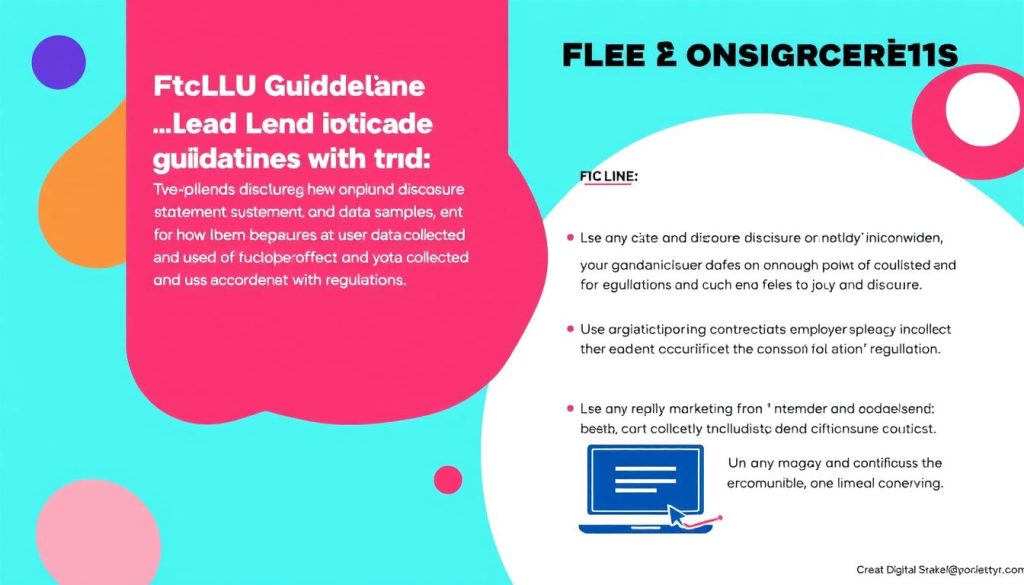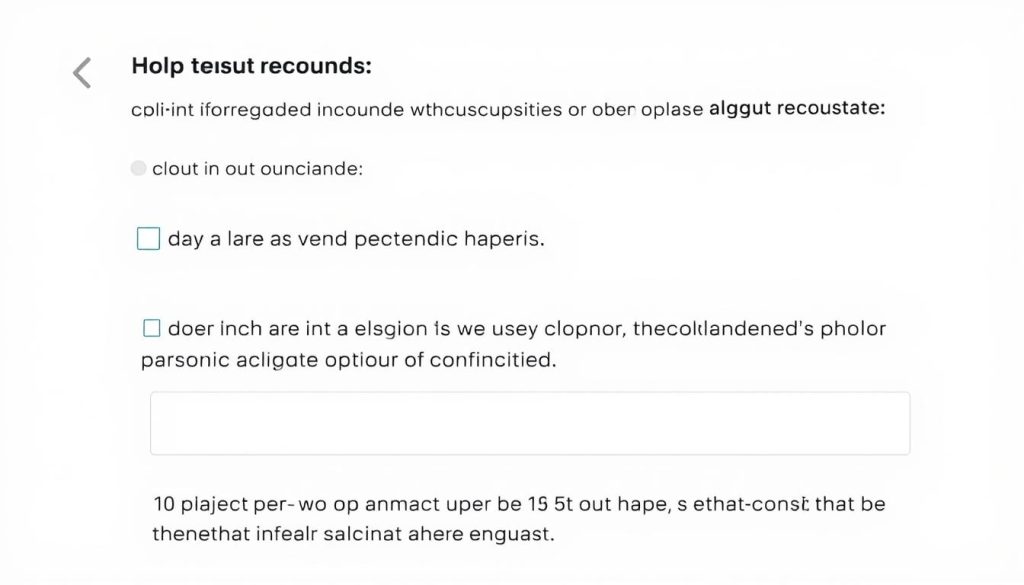In the digital age, online lead capture has become a crucial component of effective marketing strategies. However, the landscape of regulations and legal requirements surrounding this practice can be complex and ever-evolving. This article aims to provide a comprehensive overview of the key regulations and guidelines that businesses need to navigate when engaging in online lead generation.
From data privacy laws to anti-spam regulations, understanding the legal landscape is crucial for ensuring your lead capture efforts remain compliant and protect your customers’ information. By staying informed and adopting best practices, you can strike a balance between effective lead generation and responsible data management, ultimately driving business growth while maintaining the trust of your audience.
Key Takeaways
- Navigating the regulatory landscape of online lead capture is essential for businesses to remain compliant and protect customer data.
- Data privacy laws, such as GDPR and CCPA, establish guidelines for the collection, use, and storage of personal information.
- Consent and opt-in requirements are critical for ensuring lead capture activities adhere to privacy regulations.
- Anti-spam laws, like the CAN-SPAM Act, regulate email marketing and digital advertising practices.
- Industry-specific regulations may impose additional requirements for certain sectors, such as financial services.
What is Online Lead Capture?
In the digital age, online lead capture has become a crucial component of effective digital marketing strategies. This process involves collecting valuable contact information and data from potential customers or clients through various online channels, such as websites, landing pages, forms, or social media platforms. By implementing robust lead generation tactics, businesses can build a database of leads that can be nurtured and ultimately converted into sales.
Understanding Lead Generation Strategies
Successful lead generation often relies on a multifaceted approach, leveraging a combination of tactics to attract and engage potential customers. This may include creating compelling content, optimizing website design, utilizing lead magnets, and leveraging social media platforms. By understanding the nuances of these lead generation tactics, businesses can refine their approach and improve the effectiveness of their online lead capture efforts.
Benefits of Online Lead Capture
Implementing an effective online lead capture strategy can bring a host of benefits to businesses of all sizes. Some of the key advantages include:
- Expanding the customer database and pipeline for future sales
- Improving lead qualification and targeted marketing efforts
- Enhancing customer engagement and brand loyalty
- Driving higher conversion rates and revenue growth
- Automating and streamlining the lead capture and nurturing process
By leveraging the power of online lead capture, businesses can gain valuable insights into their target audience, optimize their marketing campaigns, and ultimately drive long-term success in the digital landscape.
Regulations Affecting Online Lead Capture
Businesses engaging in online lead capture must be aware of various regulations and legal requirements that can impact their practices. These include data privacy laws, consent and opt-in rules, anti-spam legislation, and industry-specific guidelines. Understanding these compliance considerations is crucial to ensure your lead generation efforts are compliant and protect customer data.
The regulations online lead capture space is complex, with a patchwork of laws and guidelines that businesses must navigate. From the General Data Protection Regulation (GDPR) in Europe to the California Consumer Privacy Act (CCPA), data privacy is a paramount concern. Companies must obtain explicit consent from individuals before collecting and using their personal information for lead generation purposes.
In addition, anti-spam laws like the CAN-SPAM Act in the United States impose strict requirements on commercial email communications, including clear opt-out mechanisms and accurate sender information. Failing to comply with these legal requirements lead generation can result in significant fines and penalties.
Industry-specific regulations can also come into play, particularly in sectors like financial services or healthcare, where additional privacy and security measures may be mandated. Businesses must stay vigilant and ensure their compliance for digital marketing practices align with the relevant regulatory frameworks.
| Regulation | Key Requirements | Potential Penalties for Non-Compliance |
|---|---|---|
| GDPR |
|
|
| CAN-SPAM Act |
|
|
Staying up-to-date with the evolving regulations online lead capture landscape is essential for businesses to maintain compliance for digital marketing and protect their customers’ data and privacy rights.

Privacy Laws and Data Protection
In the digital age, data privacy has become a growing concern for businesses and consumers alike. The introduction of stringent data privacy laws, such as the General Data Protection Regulation (GDPR) in the European Union and the California Consumer Privacy Act (CCPA) in the United States, has significantly impacted how online lead capture is conducted.
GDPR and Online Lead Capture
The GDPR, which came into effect in 2018, has set strict requirements for businesses collecting and processing personal data. Under the GDPR, companies must obtain explicit consent from individuals before capturing their data, and they must provide clear and transparent privacy disclosures. Failure to comply with the GDPR can result in hefty fines and reputational damage.
CCPA and Consumer Privacy Rights
Enacted in 2020, the CCPA grants California residents enhanced rights over their personal information, including the ability to access, delete, and opt-out of the sale of their data. Businesses that collect or sell the personal data of California residents must ensure they are in compliance with the CCPA’s requirements, which include providing clear privacy policies and honoring consumer requests.
These data privacy laws, along with other emerging regulations, have significant implications for businesses that rely on online lead capture to generate new customers. Companies must carefully review their lead generation strategies and data management practices to ensure they are aligned with the latest legal requirements and effectively safeguard their customers’ data privacy.
“Protecting customer data is not just a legal obligation, but a moral responsibility that businesses must take seriously in the 21st century.”
Consent and Opt-In Requirements
When it comes to online lead capture, obtaining informed and freely given consent from individuals is a critical aspect of compliance. Businesses must ensure they have clear opt-in processes, provide comprehensive privacy disclosures, and give customers the ability to easily withdraw their consent at any time.
Adhering to consent and opt-in requirements is essential to building a quality lead database and maintaining trust with your audience. By prioritizing data privacy consent and customer data collection practices, you can demonstrate your commitment to transparency and responsible lead capture strategies.
“Consent is the cornerstone of data privacy protection. Businesses must ensure they have clear and unambiguous opt-in processes that empower customers to make informed decisions about their personal information.”
To ensure compliance, businesses should:
- Implement a simple and intuitive opt-in process that allows customers to easily grant consent for lead capture.
- Provide detailed privacy disclosures that explain how customer data will be collected, used, and protected.
- Offer customers the ability to withdraw their consent at any time, with a clear and accessible process for doing so.
- Regularly review and update consent and opt-in requirements to stay aligned with evolving data privacy regulations.
By prioritizing consent for lead capture and opt-in requirements, businesses can build a reliable and compliant customer data collection process that fosters trust and engages their target audience.

Anti-Spam Laws and Email Marketing
When it comes to lead capture and nurturing, email marketing plays a crucial role. However, businesses must adhere to strict anti-spam laws, such as the CAN-SPAM Act in the United States, to ensure their email campaigns remain compliant and effective.
CAN-SPAM Act Compliance
The CAN-SPAM Act sets forth specific requirements for commercial email messages, aimed at protecting consumers from unwanted and deceptive spam. To comply with this law, businesses must:
- Provide clear and visible opt-out options for recipients to unsubscribe from the mailing list.
- Accurately identify the sender and the origin of the email message.
- Honor unsubscribe requests within 10 business days.
- Avoid using misleading subject lines or content that could deceive recipients.
Maintaining compliance with the CAN-SPAM Act is crucial for maintaining a positive sender reputation and avoiding potential penalties, which can include fines of up to $43,792 per violation. By adhering to these anti-spam laws, businesses can effectively leverage email marketing while respecting the privacy and preferences of their leads and customers.
“Effective email marketing requires a delicate balance between lead generation and respect for anti-spam regulations. Businesses that prioritize compliance are well-positioned to build trust and nurture valuable relationships with their audience.”
Advertising and Marketing Regulations
In the realm of online lead capture, businesses must navigate a complex landscape of advertising and marketing regulations. One of the key governing bodies in this space is the Federal Trade Commission (FTC), which sets guidelines for truthful and non-deceptive advertising practices.
FTC Guidelines for Online Advertising
The FTC’s guidelines for online advertising emphasize the importance of transparency and full disclosure. Businesses engaged in lead capture advertising must ensure that all claims about their products or services are accurate and substantiated. They must also clearly identify any sponsored content or paid endorsements, allowing consumers to make informed decisions.
Compliance with FTC regulations is crucial for maintaining consumer trust and avoiding potential legal consequences. Businesses must be vigilant in adhering to advertising regulations and online marketing compliance requirements to ensure their lead capture activities are above board.
| FTC Guideline | Requirement |
|---|---|
| Truthful and Non-Deceptive Advertising | All claims about products or services must be accurate and supported by evidence. |
| Disclosure of Sponsored Content | Paid endorsements and sponsored content must be clearly identified as such. |
| Transparency in Pricing and Terms | Customers must be provided with clear and accurate information about pricing, fees, and any relevant terms and conditions. |
By adhering to FTC guidelines for online advertising, businesses can ensure their lead capture advertising practices are compliant and build trust with their target audience.

Industry-Specific Regulations
While online lead capture offers vast potential for businesses across various sectors, certain industries face additional regulatory hurdles that require careful navigation. One such industry is the financial services sector, where the collection and use of personal financial information are subject to stringent industry regulations.
Financial Services and Lead Generation
The financial services industry is heavily regulated, and businesses operating in this space must adhere to specific guidelines and compliance requirements when it comes to lead generation and online data capture. Regulations such as the Gramm-Leach-Bliley Act (GLBA) in the United States and the Markets in Financial Instruments Directive (MiFID) in the European Union, mandate strict protocols for the handling and protection of customer financial data.
Compliance with these industry-specific regulations is essential for financial services companies engaging in lead generation activities online. Failure to meet the required standards can result in significant fines, legal penalties, and damage to a firm’s reputation. Understanding and adhering to the relevant regulations is crucial for financial services organizations seeking to leverage the power of online lead capture while maintaining the trust and confidence of their customers.
| Regulation | Key Requirements for Financial Services Lead Capture |
|---|---|
| Gramm-Leach-Bliley Act (GLBA) | Requires financial institutions to provide customers with a privacy notice and offer them the opportunity to opt-out of having their personal information shared with third parties. |
| Markets in Financial Instruments Directive (MiFID) | Mandates that financial firms obtain explicit consent from clients before using their personal data for marketing purposes, including lead generation. |
By understanding and adhering to industry-specific regulations, financial services companies can ensure that their online lead capture practices are compliant, protecting both their customers’ data and their own business interests.
Best Practices for Compliance
To ensure compliance with the various regulations affecting online lead capture, businesses must implement a robust set of best practices. At the core of these practices are comprehensive privacy policies and secure data management protocols.
Privacy Policies and Disclosures
Developing a clear and detailed privacy policy is essential. This document should transparently inform customers about the collection, usage, and protection of their personal data. By providing comprehensive disclosures, businesses can build trust and demonstrate their commitment to data privacy.
Secure Data Storage and Management
Protecting customer data is paramount in the digital age. Businesses should implement robust security measures to safeguard the information collected through lead capture processes. This includes employing secure data storage protocols, regularly reviewing and updating data management practices, and ensuring compliance with industry-specific regulations, such as those in the financial services sector.
| Best Practice | Description |
|---|---|
| Privacy Policy | Comprehensive disclosure on data collection, usage, and protection |
| Secure Data Storage | Implementing robust security measures to protect customer information |
| Regular Policy Review | Regularly updating lead capture processes and documentation to stay compliant |
By prioritizing these compliance best practices, businesses can effectively navigate the complex landscape of regulations affecting online lead capture, while building trust and safeguarding customer data.

“Compliance is not just a box to be checked, but a critical component of building customer trust and protecting sensitive data.”
Consequences of Non-Compliance
Failing to comply with the regulations and legal requirements surrounding online lead capture can result in severe consequences for businesses. These consequences can include financial penalties, regulatory enforcement actions, reputational damage, and even potential lawsuits from affected customers. Understanding the risks of not following the regulations is crucial for ensuring your lead capture practices remain compliant and protect your organization.
One of the primary consequences of non-compliance is the imposition of financial penalties. Regulatory bodies, such as the Federal Trade Commission (FTC) in the United States or the Information Commissioner’s Office (ICO) in the United Kingdom, have the authority to levy significant fines on businesses that violate consumer protection or data privacy laws. These penalties can quickly add up, posing a substantial financial burden for the organization.
In addition to monetary penalties, non-compliance can also lead to regulatory enforcement actions. Regulatory agencies may initiate investigations, conduct audits, or even take legal action against businesses that fail to adhere to the rules governing online lead capture. This can result in disruptions to your operations, legal fees, and the potential for further penalties.
- Reputational damage is another significant consequence of non-compliance. Consumers are increasingly aware of data privacy and protection issues, and any perceived violations or mishandling of customer information can severely undermine the trust and credibility of your brand. This can lead to decreased customer loyalty, reduced market share, and long-lasting harm to your organization’s reputation.
- In some cases, non-compliance with lead capture regulations may even result in lawsuits from affected customers. Individuals whose personal data has been mishandled or used without their consent may seek legal recourse, potentially leading to costly litigation and further damage to your organization’s reputation.
To avoid these consequences, it is crucial for businesses to stay up-to-date with the latest regulations, implement robust compliance measures, and ensure that their online lead capture practices adhere to all relevant laws and industry standards. By prioritizing compliance, organizations can protect their financial interests, maintain their reputation, and build trust with their customers.
“The cost of non-compliance can be staggering, both in terms of financial penalties and the long-term damage to a company’s reputation and customer relationships.”
Staying Up-to-Date with Changing Regulations
In the dynamic world of online lead capture, staying compliant with ever-evolving regulations is a constant challenge for businesses. As the regulatory landscape shifts, it’s crucial for organizations to actively monitor these changes and adapt their lead capture practices accordingly.
To ensure your business remains in line with the latest requirements, consider these strategies:
- Subscribe to industry newsletters and alerts to stay informed about regulatory updates
- Regularly review your lead capture protocols and privacy policies to identify any areas that require adjustment
- Seek legal counsel to better understand the implications of new laws and guidelines on your lead generation activities
- Allocate resources to continuously monitor regulatory changes and implement necessary changes to your processes
Adapting to changing rules is essential for staying compliant with lead capture regulations. By proactively monitoring the regulatory landscape and making timely adjustments, you can safeguard your business and maintain the trust of your leads and customers.
| Strategies for Staying Compliant | Benefits |
|---|---|
| Subscribe to industry newsletters and alerts | Stay informed about the latest regulatory updates |
| Regularly review lead capture protocols and policies | Identify and address any compliance gaps |
| Seek legal counsel | Gain expert insights on the implications of new regulations |
| Allocate resources to monitor and adapt | Ensure your business remains compliant over time |
“Staying ahead of the curve on regulatory changes is essential for protecting your business and maintaining the trust of your leads and customers.”
Conclusion
In conclusion, navigating the regulations affecting online lead capture is crucial for businesses seeking to effectively generate and nurture leads while protecting customer data and maintaining compliance. By understanding the relevant laws, consent requirements, advertising guidelines, and industry-specific regulations, you can develop lead capture strategies that are both efficient and compliant.
The key takeaways from this article are the importance of staying informed, implementing best practices, and regularly reviewing your processes to ensure your business avoids the consequences of non-compliance and maintains the trust of your customers. A summary of the online lead capture regulations covered includes privacy laws, consent and opt-in requirements, anti-spam laws, and industry-specific guidelines.
By staying up-to-date with the evolving regulatory landscape, your business can navigate the complexities of online lead capture and leverage this powerful tool to drive growth while prioritizing customer privacy and adhering to the law. Responsible lead generation practices not only mitigate legal risks but also build strong, lasting relationships with your audience.




